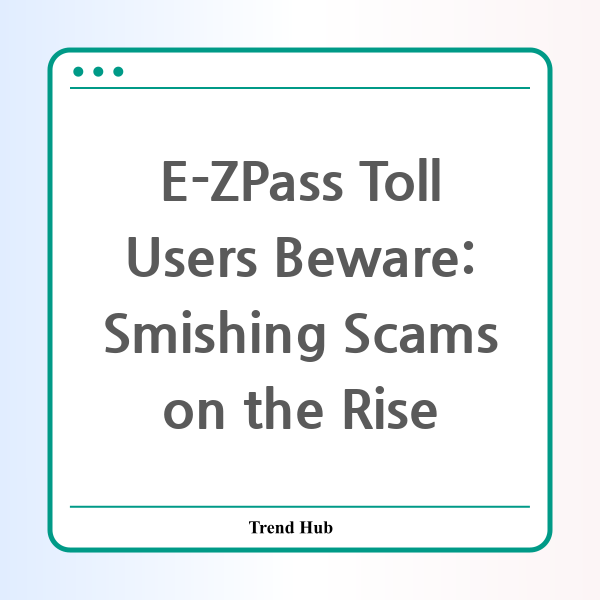* This website participates in the Amazon Affiliate Program and earns from qualifying purchases.

Are You an E-ZPass User? Protect Yourself from Smishing Scams!
As the number of E-ZPass users continues to rise due to its convenience for toll payments, so too does the emergence of scams targeting these users. Recently, both the Virginia Department of Transportation (VDOT) and the Chesapeake Bay Bridge-Tunnel (CBBT) have issued warnings regarding a surge in fraudulent text messages, known as "smishing" scams. These deceptive tactics aim to steal your financial information by falsely claiming that you owe toll payments.
But what exactly is a smishing scam? Smishing is a portmanteau of SMS (short message service) and phishing, which involves the use of fraudulent text messages that appear to be from legitimate institutions, such as toll road agencies. Victims receive these messages and are coerced into revealing sensitive personal information under the guise of an overdue balance on their toll accounts.
Through these scams, fraudsters send text messages typically containing alarming statements about unpaid tolls, often with a link included, urging people to make immediate payments. This tactic poses a significant risk because many recipients may feel pressured to act quickly, leading them to click on the malicious link.
To safeguard yourself from these scams, follow these essential tips:
- Verify the Source: Always verify any communication claiming to be from E-ZPass or related toll agencies by calling the official customer service number.
- Do Not Click Links: Avoid clicking on any links in unsolicited text messages. If you receive a suspicious message, it’s best to report it and then delete it.
- Protect Your Information: Never share personal or financial information via text message, even if the request appears legitimate.
- Report Suspicious Activity: If you have received a suspicious message, report it to the appropriate authorities, such as the FBI’s Internet Crime Complaint Center (IC3).
It is crucial to remain vigilant, especially during peak travel seasons when toll road usage increases, making scams more prevalent. Motorists should be aware that legitimate agencies, like VDOT and CBBT, will never request payments or sensitive information via text messages. Any messages that prompt you to pay outstanding tolls through a link are an immediate red flag.
In addition to these tips, the CBBT has outlined additional precautions:
- Check any messages against your account history directly through the official E-ZPass website or app.
- Keep your device secure by updating your operating systems and using trusted security software.
- Be skeptical of unsolicited communication; if in doubt, don’t respond.
As an E-ZPass user, your awareness and vigilance are your best defenses against these growing scams. Stay informed about the potential threats and always prioritize your financial safety. If you believe you have been a victim of a smishing scam, take immediate action to protect your accounts and personal information.
By keeping informed and cautious, you can continue to enjoy the convenience of E-ZPass without falling prey to scams. Remember, your security is paramount, and staying alert can help safeguard your financial well-being.
* This website participates in the Amazon Affiliate Program and earns from qualifying purchases.